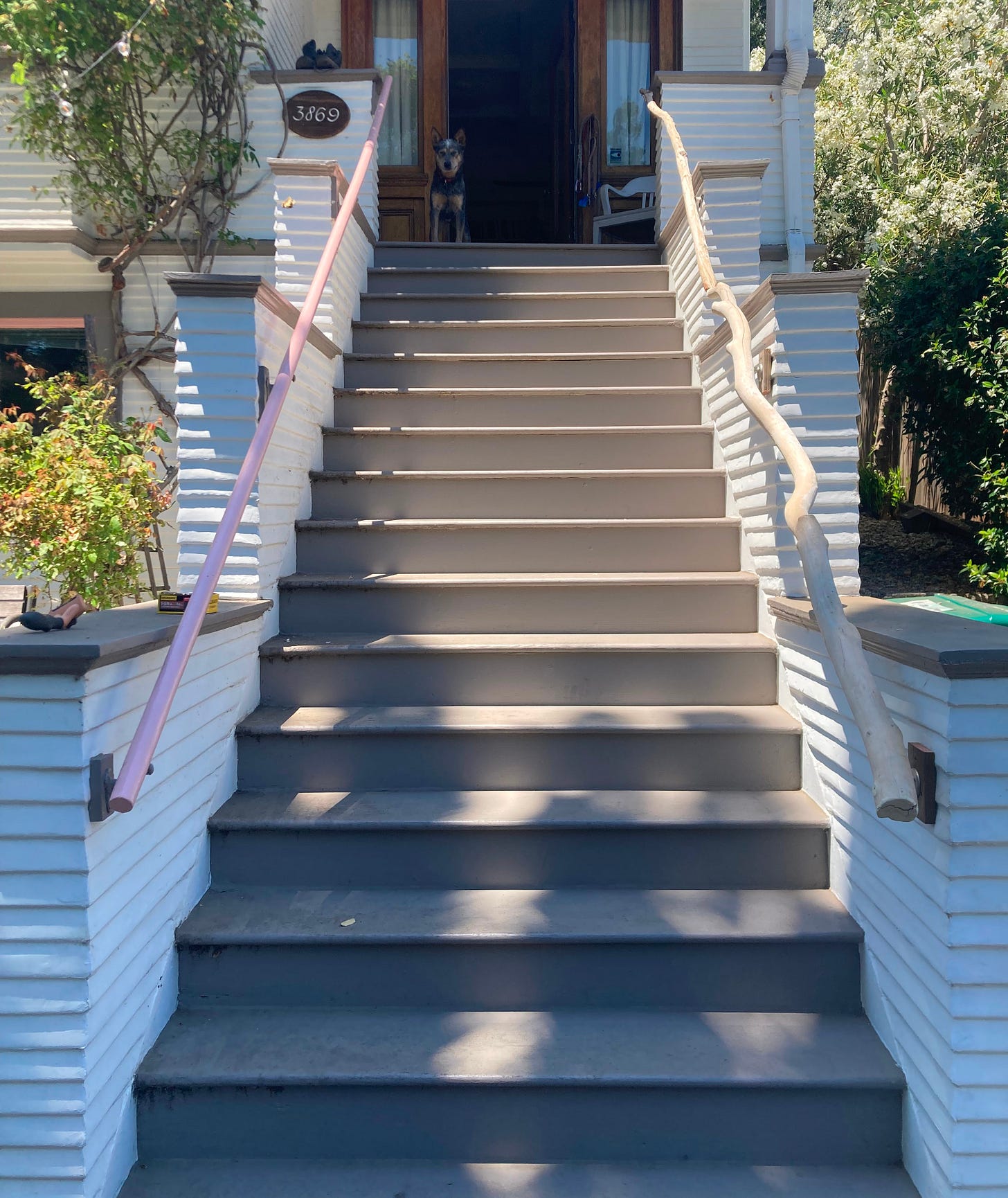We recently conducted interviews with alumni of our Aging 360 workshop at the Cadillac Hotel in San Francisco's Tenderloin district. Our goal was to amplify their voices, demonstrate the workshop's impact to funders, and highlight how our living spaces profoundly shape our aging experience, regardless of our circumstances.
Aging 360 empowers participants to make simple adaptations to their home, enhancing their connection, safety, comfort, and delight. Most older adults at the Cadillac (an SRO or Single Room Occupancy hotel) have experienced homelessness at some point. Their rooms typically measure just 8 by 10 feet. Only 30% of residents have a private bathroom and none have a kitchen. Despite these constraints, Aging 360 has been remarkably impactful–-many residents participate multiple times and report meaningful shifts in how they perceive themselves and their living spaces. Over the past two years, we've built deep relationships with our students and learned tremendously from them.
When asked how she'd benefited from the workshop, one longtime student, Eva, replied: "It helped me come out as an older person."
No one had ever phrased it quite that way before—coming out as an older person. This term, popularized by the LGBTQ+ community, perfectly captures the courage required to express who you are and what you need, even when it differs from societal norms. And It appropriately describes life as an older adult.
Coming out as an older person means acknowledging that some days you feel good, others bad, and asking to be welcomed regardless, without judgment. You may no longer be considered "cute." You might need help with once-simple tasks. Activities that previously brought joy, like traveling, might now feel stressful, and what you truly desire might simply be to stay at home. You may become less enthusiastic about outings with others because fatigue and frustration with diminished abilities can make you irritated and maybe even angry.
So how can you embrace the inevitable changes of growing older without becoming a recluse, potentially leading to depression and loneliness? Coming out likely requires support from the people as well as the environment around you. Others must adapt to your abilities as much as environments must. This may mean listening with compassion, taking extra time—something we all need more of as we age—being flexible with plans whenever possible.
Our physical environments must also be designed to facilitate participation in public life and socialization—literally lowering the threshold to go out, helping older adults feel strong despite frailties. Providing a handrail on both sides of stairs, for example, is a simple design solution with potentially high impact.
For older adults, coming out means attaching value to the aging experience rather than viewing it solely as a time of decline. This isn't easy, as we often compare ourselves to our younger selves. We make excuses for no longer being able to do things that once came easily.
How might we reframe this? Perhaps: "I'm coming out as an older adult, and it's harder for me to get up from this chair. Could you please provide a pillow to see if making the seat higher helps? Or could you stand beside me and offer support?" In other words, we need to equip ourselves with information to teach others how to enable and empower us to remain engaged so that we can share our invaluable insights about life and aging like our friends at the Cadillac do.
These lessons will prove immensely valuable for all of us as we approach the later phases of life.






Beautiful essay! Why keep our aging "in the closet," when we can wear it openly, socially, sometimes even joyfully, in the broad light of day?